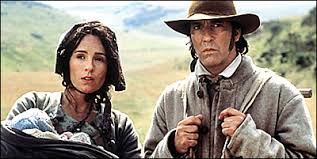

Women in The Mayor of Casterbridge
This article discusses Hardy’s treatment of women in The Mayor of Casterbridge. Thomas Hardy’s “The Mayor of Casterbridge” provides a nuanced exploration of the treatment of women in Victorian society, unveiling a tapestry of societal norms and personal struggles. The novel, set in the rural town of Casterbridge, portrays the challenges and limitations imposed on women during the 19th century.
At the heart of the narrative is the character of Susan Henchard, the wife of the protagonist, Michael Henchard. Susan’s portrayal reflects the prevalent gender roles and societal expectations of the time. Hardy illustrates the vulnerability of women like Susan, who are largely dependent on the decisions and actions of the men in their lives. Susan’s choices are constrained by societal norms, leaving her with limited agency.
One pivotal moment that encapsulates Susan’s plight is her sale to a sailor by Michael Henchard, in a fit of drunken impulsivity. This transaction underscores the commodification of women in a patriarchal society, reducing them to objects of exchange rather than individuals with autonomy. Susan’s passive acceptance of her fate exemplifies the lack of agency women often faced in their marital and societal roles.
As the plot unfolds, Susan’s life is marked by sacrifice and endurance. She suppresses her personal desires and aspirations to conform to the expected roles of wife and mother. Hardy masterfully portrays Susan’s internal struggles, revealing the toll that societal expectations take on women. The limited options available to Susan highlight the stark realities faced by women in a society that defined their worth through domestic roles.
Elizabeth-Jane, Susan’s daughter, provides another lens through which Hardy examines the treatment of women. Elizabeth-Jane navigates a world where her identity is shaped by her relationship with her father and societal expectations. Despite her intelligence and resilience, Elizabeth-Jane faces obstacles in asserting her independence. The constraints imposed on her are a testament to the deeply ingrained gender norms that permeated Victorian society.
Lucetta Templeman, another key female character, adds complexity to Hardy’s exploration of women in “The Mayor of Casterbridge.” Lucetta’s trajectory is marked by societal judgment and the consequences of her own choices. Her character challenges conventional expectations, illustrating the harsh consequences faced by women who deviate from societal norms. Lucetta’s tragic fate underscores the limited agency women had in shaping their destinies during this period.
Hardy also uses symbolic elements to convey the struggles of women. The recurring motif of the skimmity ride, a public shaming ritual, reflects the harsh judgment and societal scrutiny faced by women who transgressed moral boundaries. This ritual becomes a haunting reminder of the punitive measures reserved for women who dared to challenge societal norms.
In conclusion, Thomas Hardy’s “The Mayor of Casterbridge” intricately examines the treatment of women in Victorian society. Through characters like Susan Henchard, Elizabeth-Jane, and Lucetta Templeman, Hardy unveils the restrictive gender roles and societal expectations that shaped women’s lives. The novel serves as a poignant commentary on the challenges, sacrifices, and limited agency experienced by women in a patriarchal society during the 19th century.
#Hardy’s treatment of women #Hardy’s treatment of women #Hardy’s treatment of women #Hardy’s treatment of women #Hardy’s treatment of women #Hardy’s treatment of women #Hardy’s treatment of women #Hardy’s treatment of women #Hardy’s treatment of women #Hardy’s treatment of women #Hardy’s treatment of women
Role of Susan in the Tragedy of Henchard
Renaissance poetry—Age of Rebirth of Arts, Literature and Humanism
Michael Henchard As a Man of Character
Visit Us on our Facebook Page:
Speech on Mercy by Portia: Rhetoric, Religion, and Justice in The Merchant of Venice Speech…
Analysis of I Too and The Weary Blues by Langston Hughes: Colonial Experience Langston Hughes,…
Ben Jonson and Comedy of Humours inVolpone (Satire & Greed) This article explores Ben Jonson…
Themes in Twelfth Night William Shakespeare’s Twelfth Night (c. 1601) is one of his most…
Summary of Twelfth Night William Shakespeare’s Twelfth Night, believed to have been written around 1601,…
Shakespearean Comedy and Its Features William Shakespeare, one of the greatest playwrights in English literature,…
This website uses cookies.